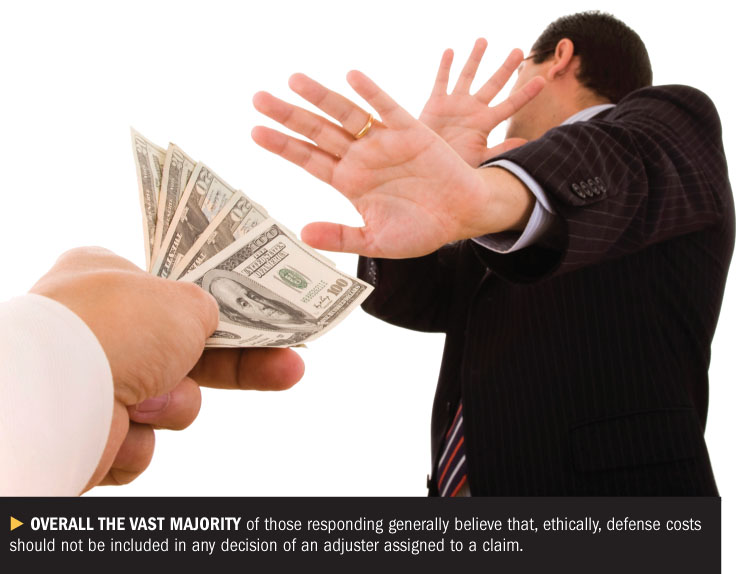 The Dilemma: An adjuster has established an honest opinion of a claim with the maximum indemnity value in the range of 80 percent of policy limits. An offer of settlement within that range has been rejected—with a lawsuit filed instead of a counteroffer. The adjuster believes defense costs, in addition to the highest value of the settlement range, will exceed policy limits. Ethically, should the adjuster offer policy limits to try to settle the claim without incurring projected defense costs?
The Dilemma: An adjuster has established an honest opinion of a claim with the maximum indemnity value in the range of 80 percent of policy limits. An offer of settlement within that range has been rejected—with a lawsuit filed instead of a counteroffer. The adjuster believes defense costs, in addition to the highest value of the settlement range, will exceed policy limits. Ethically, should the adjuster offer policy limits to try to settle the claim without incurring projected defense costs?
The Industry Responds: Claims professionals immediately recognized additional information would be necessary for a final ethical decision. Among the information respondents wanted to know were: 1) Is this a first- or third-party claim? 2) Was the suit filed because of a statute of limitations or as a practice of the claimant's attorney? 3) How close was the offer to the upper end of the settlement range? 4) Is it a bodily injury or property-damage claim? 5) What are the potential “bad faith” implications of the claim?
Answers to these questions naturally affect the ethical response of the adjuster. For example, most states impose a higher duty on insurers when the insured is also the claimant. And filing a claim to meet a statute of limitations is a significantly different situation than a claimant filing to force a greater offer.
Recommended For You
Want to continue reading?
Become a Free PropertyCasualty360 Digital Reader
Your access to unlimited PropertyCasualty360 content isn’t changing.
Once you are an ALM digital member, you’ll receive:
- Breaking insurance news and analysis, on-site and via our newsletters and custom alerts
- Weekly Insurance Speak podcast featuring exclusive interviews with industry leaders
- Educational webcasts, white papers, and ebooks from industry thought leaders
- Critical converage of the employee benefits and financial advisory markets on our other ALM sites, BenefitsPRO and ThinkAdvisor
Already have an account? Sign In Now
© 2025 ALM Global, LLC, All Rights Reserved. Request academic re-use from www.copyright.com. All other uses, submit a request to [email protected]. For more information visit Asset & Logo Licensing.








